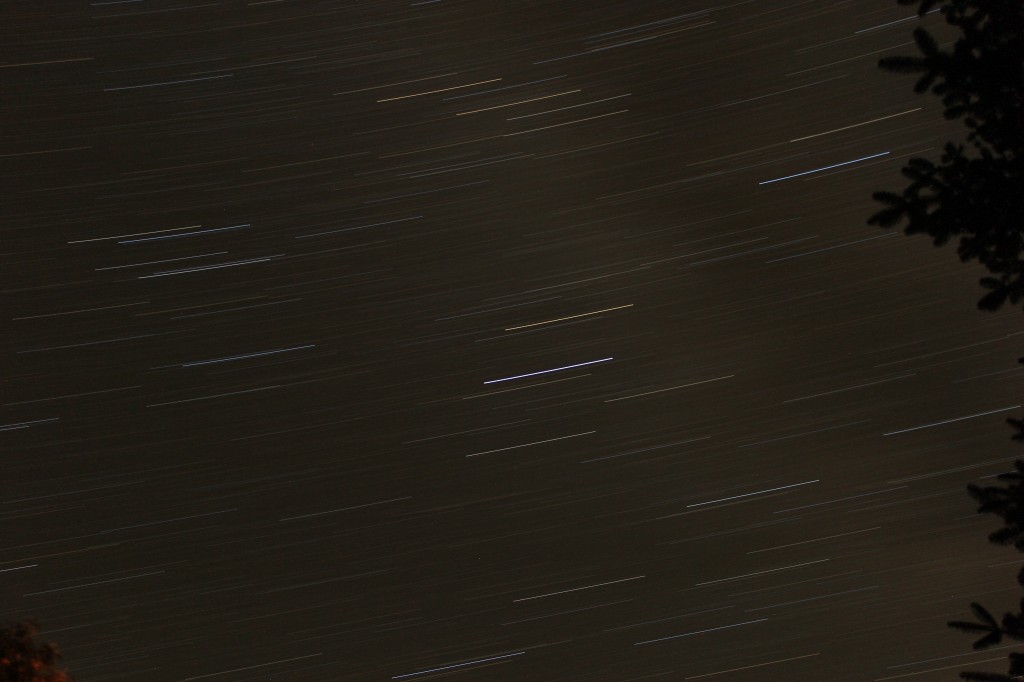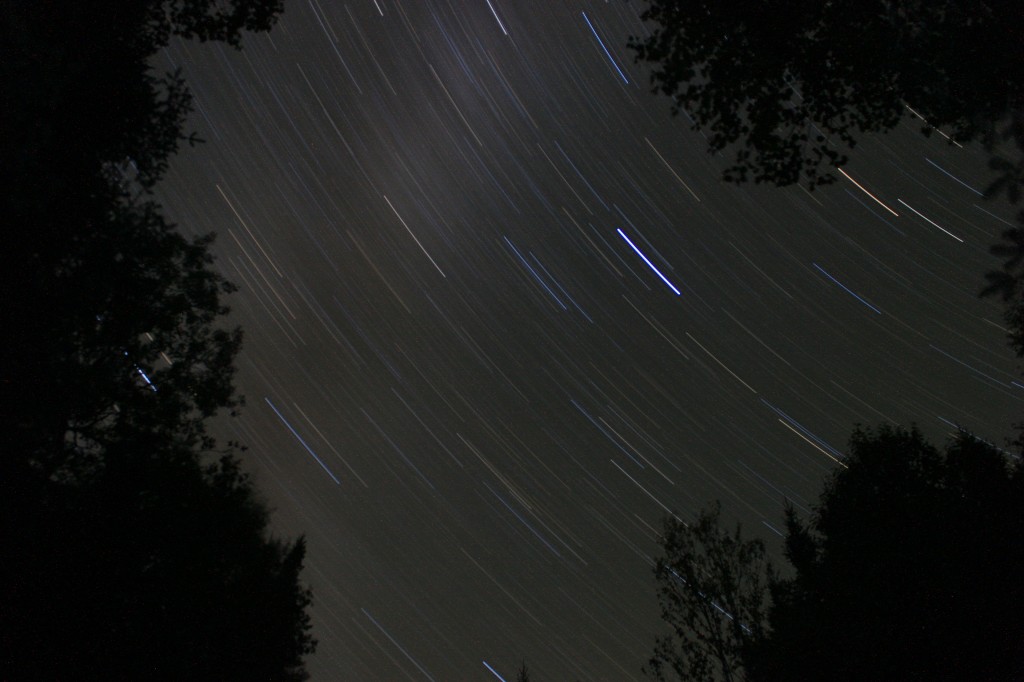In September 2012, while on a camping vacation in New Brunswick, Canada, I started experimenting with long exposure star trail photography for the first time. Over the last couple months, I certainly haven’t become an expert but am slowly learning from my mistakes.
I am not a professional photographer by any means (not one single lesson…). What follows is what a hack photography with access to some middle class equipment and Google can do in a relatively short time.
All images were taken with a Canon Rebel T3i. All were taken in Manual (M) mode at varying settings and exposure lengths. All the images are straight from the camera with no post production enhancements.
This image was taken at the Chignecto Campground at Fundy National Park. The image was exposed for 19 minutes (f/4.5, ISO 100).
This image was taken in northern New Brunswick at Mount Carleton Provincial Park. The park is a ‘Dark Sky Preserve’ which is awesome for anyone wanting to see and take pictures of the sky. There were no artificial lights, no moon and no other people in the park but us – ideal conditions.
The image is a 30 minute exposure (f/4, ISO 100) directed right at the Milky Way.
Unfortunately, this is a hazard of night time long exposure photography – especially when the temperature is approaching the freezing mark. I sat in an open field for this 20 minute exposure at midnight, only to find the lens had fogged up.
This was taken in an open area of Mount Carleton Provincial Park. With no other campers and the closest civilization about 50km away, this was a little creepy.
This image is taken in my backyard in Orangeville, Ontario, Canada. It was dark enough on the surface that I needed a flashlight to find the camera. However, there was certainly enough light pollution to over-expose the photo.
This is a 26 minute exposure at 11:00 at night (f/4.5, ISO 400). Not sure why I had it at ISO 400… A little below is basically the same image that is much less over-exposed – I used a polarizer and UV filter.
I should have pumped some lighting into this exposure but the reason why I included this image is for the airplane lines. To the centre/left side of the photo are two red streaks that run from bottom to top. This is the result of airplanes running across the field of view.
This photo was taken at Pine River Provincial Fishing Area near Shelburne, Ontario. This was just a 15 minute exposure (f/5.6, ISO 100).
This image was also taken at Pine River Provincial Fishing Area. This is a 22 minute exposure that shows another hazard of trying to get good star trails. The moon was nearly full that night and rising quickly behind. The trees look like they’re almost in daylight, despite the area being very void of light pollution.
Pine River Provincial Fishing Area without the light of the moon. This exposure is exactly 30 minutes (f/5.6, ISO 100). A little post-production brightness adjustment and this would be a decent picture.
Just another example of a wasted fifteen minutes due to a fogged up lens. This was also taken at Pine River.
The same night as the last Pine River shots, this was taken in the backyard at home in Orangeville. The exposure is 30 minutes at f/5.6 and ISO 100. However, it’s a better looking shot that the one above due to the Polarizer and UV filters and the more appropriate ISO setting.
Here’s the setup at Pine River. Camera pointing north with Pine River emptying into a short, dammed up lake.
The tools: Tripod, Canon Rebel T3i, remote control, small lazer flashlight and, most importantly, beer. Once everything’s all setup and the aperature is jammed open, there’s nothing to do but wait. Beer comes in very handy. I figure, a beer per exposure is a pretty good rate.
What’s missing is the bigger flashlight used during setup. It’s also a great tool to ‘paint’ light on foreground /background items (trees, etc.).


